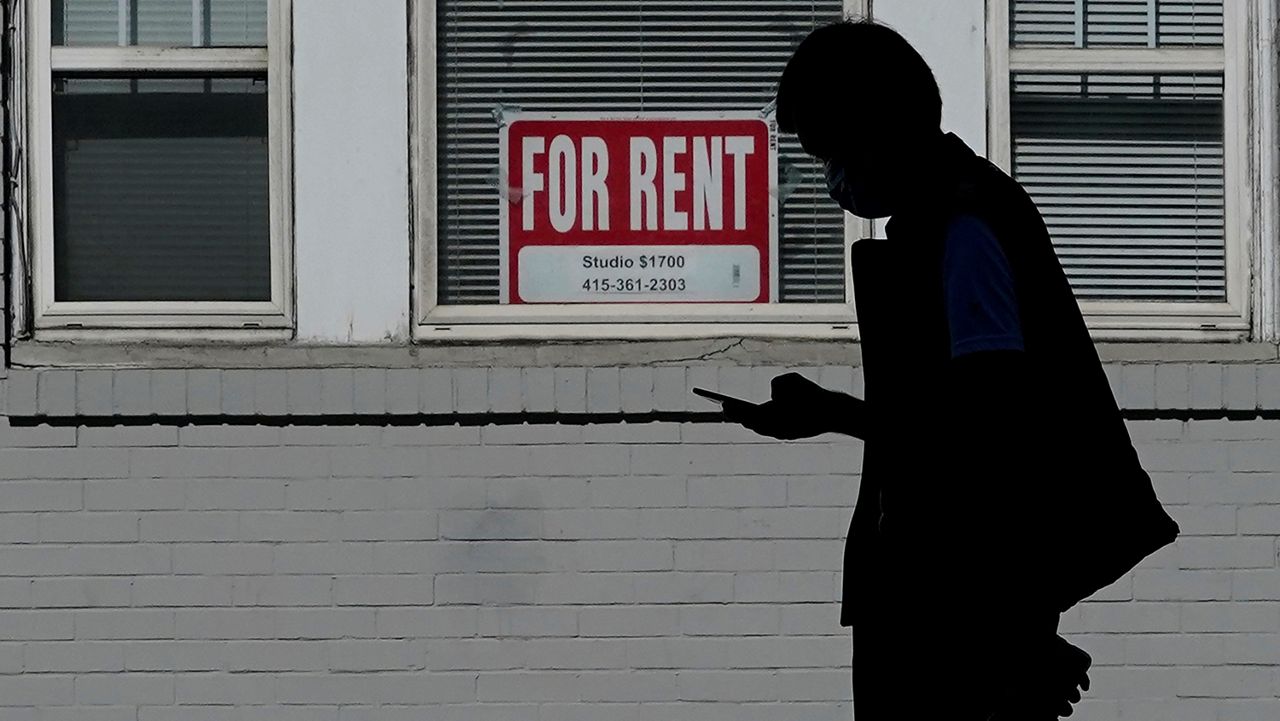SACRAMENTO, Calif. — California lawmakers pushed ahead with an emergency bill Thursday to extend protections for renters, a step housing advocates hope will lead to permanent policy.
Rent protections were put in place during the pandemic when entire industries were shut down, keeping workers at home. The stock market soared, but many low-income workers lost wages and could no longer pay rent.
Federal stimulus money flowed into American wallets, and California started an “enhanced unemployment” program. Still, fears over an “eviction tsunami” persisted, leading to rent relief packages and extensions to a moratorium on evictions. Another passed Thursday allowing some renters another three months of protections.
David Cordero, executive director of the Apartment Organization of Orange County, said that mom and pop landlords don’t have the capital to continue paying a mortgage without it generating income.
“You’re extending protections at a time when things had started to normalize, when the protections aren’t needed,” he said. “You’ve seen landlords and their tenants try to work through the pandemic with special arrangements, and I think that’s what we’ll continue to see.”
The emergency bill would extend protections for another three months among eligible tenants, namely those who have applications being processed for state funded rent relief.
Added to the mix of problems have been record inflation and huge spikes in oil costs. Interest rates have risen to hedge against inflation, and President Joe Biden announced the release of about 180 million gallons of oil over the coming months to curtail costs at the pump. Add in a snarled supply chain, and everything has become more expensive for everyone with wages failing to keep pace.
“There’s no perfect resolution here. It’s just the conditions we’re operating under are going to continue under various forms and it’s just a matter of sticking it out,” Cordero said.
Mass evictions, Cordero said, aren’t appealing to landlords, either. He said they’d rather have filled buildings than many empty apartments that may need to be renovated to be leased again.
But without steady income from rent, he said, it’s difficult for owners to reinvest in the property or finance a surge in insurance costs.
For housing advocates, the string of extensions is a victory toward securing more leverage for tenants.
The housing supply in California has continued to dwindle, even as residents leave in record numbers. Californians left in such great numbers that the state lost a congressional district for the first time in state history. That occurred in the 2020 census, but signs show it could continue. House prices have soared anyway, with rental prices shooting upward after many rental markets dropped briefly during the pandemic.
René Moya, a housing organizer in Los Angeles, said many of the positions put in place to catch suffering tenants should be made permanent. Landlords already have all the leverage from the equity accumulated through home and property ownership, he said, now tenants need more leverage to even the playing field.
“This law was very much a compromise cooked up by the state’s landlords in support of their interests,” Moya said.
Among the changes he hopes will be permanent, Moya pointed to eviction notices which had given tenants three days to respond until lawmakers temporarily extended it to 15 days.
He also wants to see stronger rent control in Los Angeles County, with each city able to make choices specific to its residents.
“We’re in a situation where the governor’s staff members and some of his closest allies are in the real estate industry,” he said.
For Moya, housing is part of a broader list of living concerns that include health care. People with secure housing are more secure, with those drifting in and out of homes more likely to suffer from illness. Permanent rental protections and rent control, he says, will also make for a healthier community.
Housing security is also an important economic driver, he said.
“If you are evicted, you are likelier to wind up in poverty,” Moya said.



